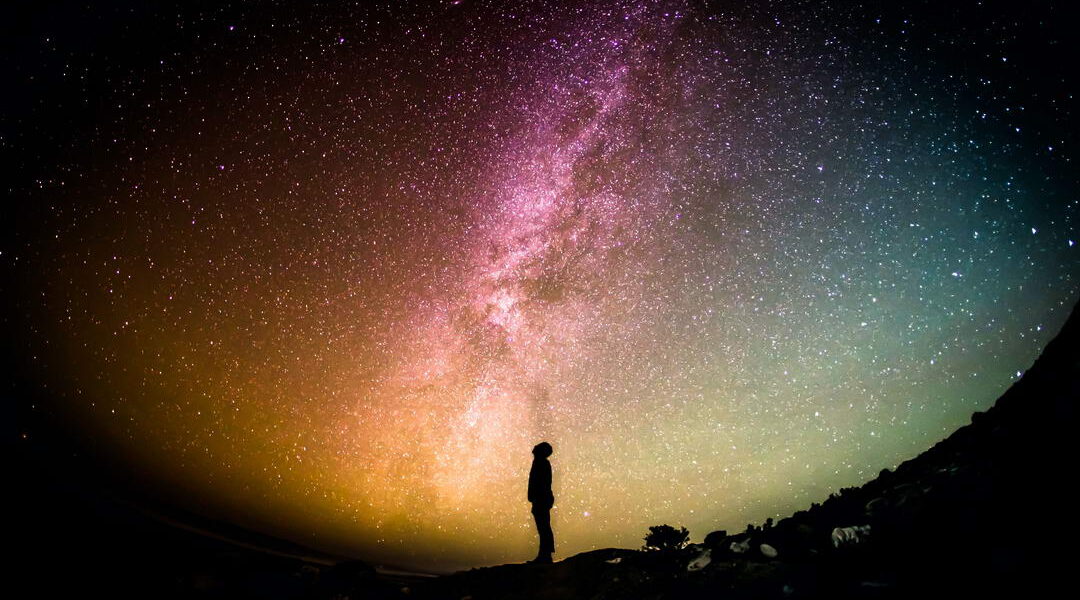Moksha, the timeless and revered concept in Hindu philosophy, is the ultimate goal of human existence—a state of liberation, enlightenment, and transcendence. This profound journey toward Moksha is often perceived as a twofold process, encompassing two distinct stages that guide seekers toward the realization of their true nature and union with the divine. In this blog article, we delve into the dual stages of Moksha, unveiling the transformative path that leads individuals from self-awareness to the pinnacle of spiritual realization.
Explore Meditation Retreats & Wellness Retreats
Explore Yoga Retreats with Tejomaia.com

Jivanmukti: Liberation While Living
The first stage of Moksha is known as Jivanmukti, which translates to “liberation while living.” In this stage, individuals attain a state of inner freedom, wisdom, and bliss while still living in the physical world. Jivanmukti is marked by the realization that the individual self (Atman) is not separate from the universal consciousness (Brahman). This recognition leads to a profound transformation in perception, where the seeker experiences life through the lens of unity and interconnectedness.
Key Aspects of Jivanmukti:
a. Self-Realization: Seekers in the stage of Jivanmukti realize their true nature as divine and eternal beings, beyond the limitations of the physical body and ego.
b. Detachment: Individuals in this stage cultivate a sense of detachment from the transient aspects of the material world, allowing them to navigate life with equanimity and inner peace.
c. Compassion: Jivanmuktas (those who have achieved Jivanmukti) are characterized by a profound sense of compassion and love for all beings, as they recognize the unity that underlies existence.
d. Freedom from Suffering: The realization of oneness and the dissolution of the ego’s illusion lead to liberation from suffering, as individuals no longer identify with the fluctuations of the external world.
Videhamukti: Liberation Beyond the Body
The second stage of Moksha is Videhamukti, which translates to “liberation beyond the body.” In this advanced stage, the seeker transcends the physical realm through the process of death. Videhamukti represents the ultimate realization of the eternal nature of the self and the merging of the individual soul (Atman) with the universal consciousness (Brahman). It is a state of ultimate liberation, where the cycle of birth and rebirth is forever transcended.
Key Aspects of Videhamukti:
a. Transcendence of Death: Seekers who attain Videhamukti are liberated from the cycle of Samsara, breaking free from the constraints of birth, death, and rebirth.
b. Union with Brahman: In Videhamukti, the individual soul merges completely with the ultimate reality (Brahman), experiencing eternal oneness and unity.
c. Immortality of Consciousness: Videhamuktas exist beyond the limitations of the physical body, experiencing the eternal and unchanging nature of consciousness.

The dual stages of Moksha, Jivanmukti and Videhamukti, encapsulate the profound journey of spiritual realization and liberation. Jivanmukti empowers seekers to experience inner freedom and wisdom while living in the physical world, fostering unity, compassion, and detachment. Videhamukti represents the ultimate culmination of the Moksha journey, where the individual transcends the cycle of birth and death, merging completely with the universal consciousness. As individuals embark on this transformative path, they move closer to the realization of their true nature, breaking free from the chains of illusion and reaching the pinnacle of spiritual liberation.
Explore Meditation Retreats & Wellness Retreats
Explore Yoga Retreats with Tejomaia.com


